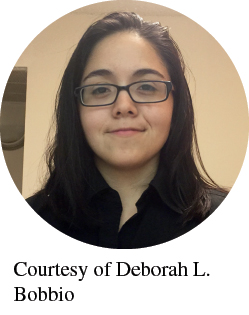Use Memory and Studying at Work

The ability to study and remember information is just as valuable outside the classroom as it is inside the classroom: Employers want to hire and promote people who keep learning and growing, and mastering memory and study strategies can help you do exactly that.
Become a Subject Matter Expert
When you’re motivated to learn and study, you’ll continue to build knowledge about your chosen field. You may even become a subject matter expert: someone who constantly learns new information to build a deep understanding of his or her field, whether it’s banking regulations, solar panel design, or software development. Being an expert is a big advantage in the workplace, as employers value go-to individuals who have the knowledge and skills the organization needs to succeed.
Communicate Using Elaborative Rehearsal
As you saw earlier, elaborative rehearsal involves making connections between new information and things you already know. Elaborative rehearsal helps you not only learn and remember information but also explain complex ideas to other people, such as customers and colleagues. Suppose that you’re a computer systems analyst and you need to explain the concept of computer bandwidth to a client, including how small and large bandwidth differ. You explain that small bandwidth is like a garden hose (it has low data flow) and that large bandwidth is like a fire hose (it has large data flow). You’re connecting a new concept, computer bandwidth, with something most people know about: the difference between garden and fire hoses. As a result, the client “gets” the concept because you’ve communicated it effectively.
WRITING PROMPT: Ask students to think about their chosen career (or a career they’re considering) and to identify two or three complex ideas they might need to explain to their clients, customers, or colleagues. How could they communicate this information using elaborative rehearsal?
Use Your Memory to Build Personal Connections
Have you ever walked into a coffee shop where the barista knows your regular order? Has a supervisor in another department ever called you by name? If so, you know that it creates a feeling of personal connection when people remember details about you. You can use your memory to build such connections yourself. Remembering details about others shows that you’re interested in their lives and helps to forge positive relationships. It’s rewarding on a personal level to make connections in a work setting, but these connections can also have business-related benefits: The people you connect with may be the source of your next sale, or they might help you network to get a promotion.
WRITING PROMPT: Ask students to write about someone they know who is a lifelong learner, responding to the following questions: What traits does this person have? Would you like to have these traits? Why or why not? What do you think motivates this person? How can you gain motivation to be a lifelong learner?
Be a Lifelong Learner
One of the best benefits of memory and study strategies is that you can use them to become a lifelong learner. Lifelong learners — who keep building their knowledge and skills long after graduation — tend to be curious about the world around them, apply study skills when they encounter something they don’t know, and look for new skills to develop. Lifelong learning keeps your brain active, makes life more interesting, and has benefits for your career: It helps you develop your skills, making you more valuable to your organization and more marketable if you decide to look for a new job or ask for a raise.
voices of experience: employee
LIFELONG LEARNING

| NAME: | Deborah Bobbio |
| PROFESSION: | Software Engineer |
| SCHOOL: | Miami Dade College |
| DEGREES: | Associate in Arts; Associate in Science; Bachelor of Science |
| MAJORS: | Computer Art Animation; Computer Engineering Technology; Electronics Engineering Technology |
“For me to be successful, I had to keep studying and learning.”
During college I focused mostly on the hardware side of computers and engineering. When I got my first job out of college, it was as a software engineer, which is a field I had little experience with before my senior year. Fortunately my employer didn’t expect me to be an expert right away — I developed my skills during the first few months on the job. I was very preoccupied with being able to keep up, but I was also excited to learn about something I didn’t have much experience with. I knew that, for me to be successful, I had to keep studying and learning.
My employer put me on a big project right away, so I started looking for free online classes and reading up on the programming language I needed. I also learned that it’s okay to ask for help. When I got stuck with something, I would do some research or talk with a fellow developer. Taking small breaks was extremely important; it helped me focus so I wouldn’t just stare at the information and then forget what I learned.
Just like in school, at work there are deadlines, projects, and problems to solve — some of which are easier than others. As with homework, I’ve learned that it’s all about practice. The more work I do, the more I learn. No one will expect you to be an expert right out of school, but if your employers see you utilizing all your resources to get the job done, they’ll recognize it. I’m motivated to keep learning, and this job has given me the incredible opportunity to do that.
YOUR TURN: If you currently have a job, how do you learn and remember the information you need to perform your job? If you’re not employed but are interested in a particular job or career, what kind of information will you need to master to excel in that role? How will you master it?